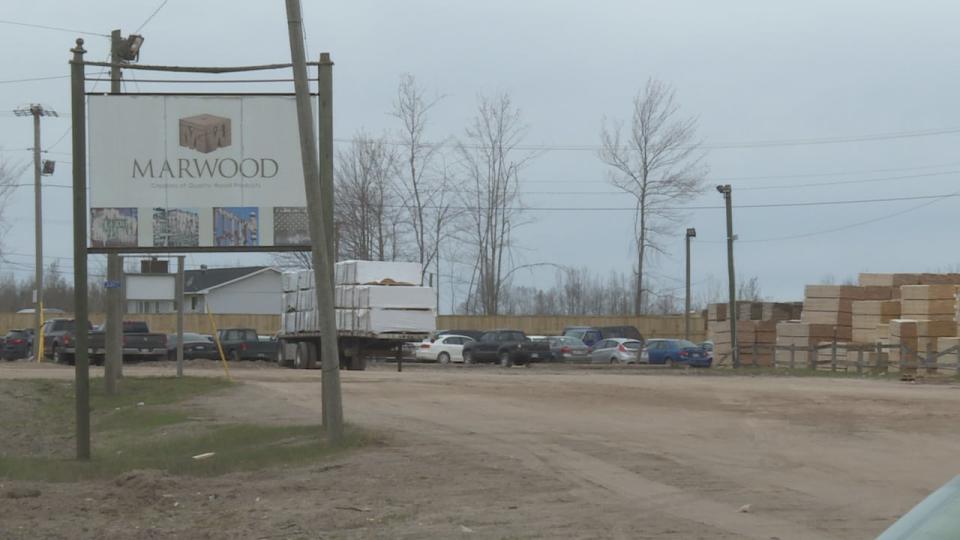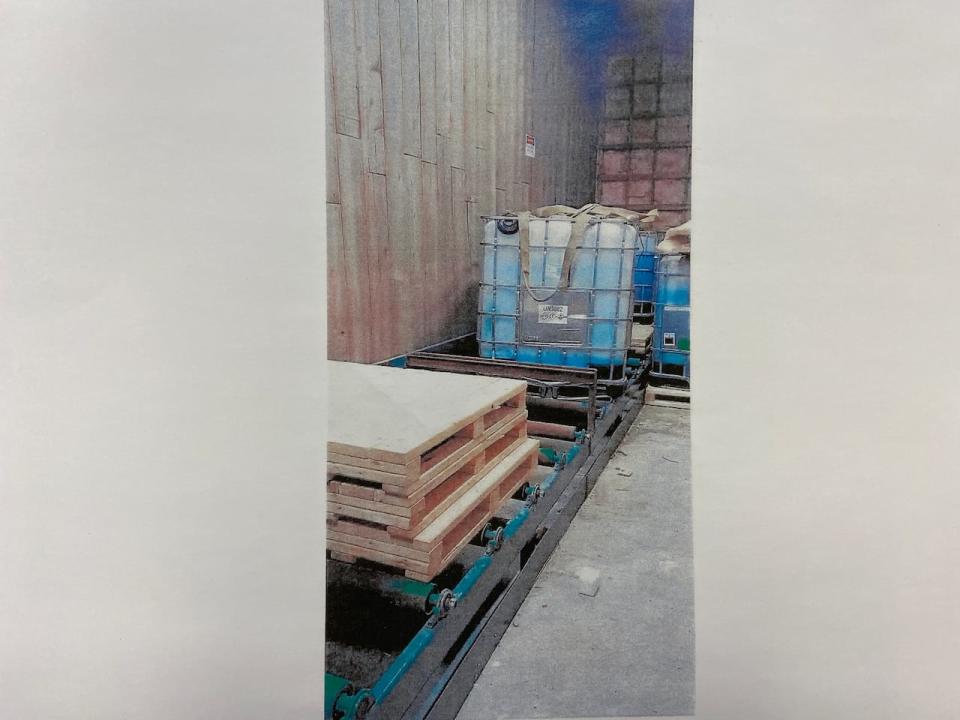Inquest jury recommends clearer training requirements following N.B. worker's death

A coroner's inquest into a fatal workplace incident in New Brunswick has concluded with a recommendation for clearer guidelines around the training employees require when operating equipment.
Jurors in the coroner's inquest into the death of William (Bill) Russell are also recommending employers be provided with templates for filling out inspections on equipment, and for industry in the province to lean on other jurisdictions to develop and implement safety management systems in a clear, specific way.
The recommendations came Tuesday afternoon, following about two hours of deliberations by the jurors at Marysville Place in Fredericton, which hosted the inquest.
The jury also agreed to classify Russell's death as accidental.
Russell died at the Saint John Regional Hospital on Feb 11, 2021, just days after he was critically injured in a workplace incident at Marwood Ltd. in Tracyville, N.B. on Feb. 1, 2021.

A coroner's inquest into Russell's death heard testimony from employees who worked at Marwood at the time of the incident. (Shane Fowler/CBC)
The inquest, which began Monday, heard testimony from an investigator with WorkSafe New Brunswick, people employed at Marwood at the time of the incident, and health-care workers who treated Russell after the incident.
Testimony revealed Russell was working in a newly constructed extension of the company's wood treatment plant, which was built to store large two-tonne totes containing chemicals used in the treatment process.
Once constructed, a 39-foot metal roll case was installed along the back wall of the warehouse to store the totes, and give employees the ability to more easily move them from one end of the warehouse to the other.
On Feb 1, 2021, Russell used a forklift to load a tote onto the roll case, and then attempted to help his supervisor move the tote along the roll case.

William Russell was pushing plastic totes along a roll case at work when the tote tipped off of one of the rollers and fell on him. (Submitted by presiding coroner Emily Caissy)
Mike Hall, the supervisor, testified that one of the rollers wasn't working to move the tote, and so Russell got out of the forklift to try to help move it along.
Hall says he didn't realize at the time that Russell had gotten behind the tote and was pushing it forward while standing in the deck of the roll case.
The tote ultimately fell back, crushing him against the rollers.
The incident caused catastrophic injury to his torso, resulting in a ruptured liver, collapsed lung and eventual kidney failure, according to testimony from doctors who treated him.
Machine wasn't built to spec
Testimony in the inquest revealed each roller in the roll case was supposed to be spaced in 18-inch intervals. However, two of the rollers were separated by a 22¼-inch gap.
That gap is where one edge of the tote tilted off a roller, and fell onto Russell.
Testimony also revealed that no standard operating procedure for how to use the roll case had been posted for staff prior to the incident.
Neither was there an inspection done of the roll case to ensure it functioned properly after it was installed.
Companies need to know all risks: widow
Russell's widow, Lee Russell, attended the two-day inquest, and at the end said she hoped her husband's death highlights the need for companies to take stock of all risks associated with their operations.

Lee Russell, left, says she hopes the coroner's inquest into her husband's death pushes companies to better consider the potential hazards posed by all pieces of equipment used by employees. (Submitted by Julie Hetherington)
"We need to make sure that this never happens to anybody else again," Russell said.
"Just because something is labelled as a 'shelf' doesn't mean there's not an inherent danger or risk to using that material or equipment," Russell said.
Two Marwood employees on Monday testified they simply thought of the roll case as a "shelf," when answering questions about why certain procedures weren't followed upon its installation.
"Any equipment with a moving piece has the potential to harm someone if not used in the proper way," Russell said, adding she hopes to see companies respond by ensuring that proper training is in place for employees.
Before adjourning the inquest, presiding coroner Emily Caissy said the jury's recommendations will be passed along to the province's chief coroner.
The chief coroner will then forward the recommendations to the appropriate agencies, which will be required to respond to them, Caissy said.
Those responses, along with the recommendations, will be included in the chief coroner's next annual report, Caissy said.
"This is the accountability process which ensures the recommendations are considered and reported on," Caissy said.
At the outset of the inquest, Caissy advised the jurors that the inquest was not a trial, and rather than laying blame, their role was to determine how to best prevent something similar from happening again.
Marwood had already pleaded guilty to "failing to ensure the safety of their employees working on, with, or around a conveyor," under the province's Occupational Health and Safety Act.
In December 2021, the company was ordered to pay $102,000 — a fine of $85,000 plus a victim surcharge of $17,000.

